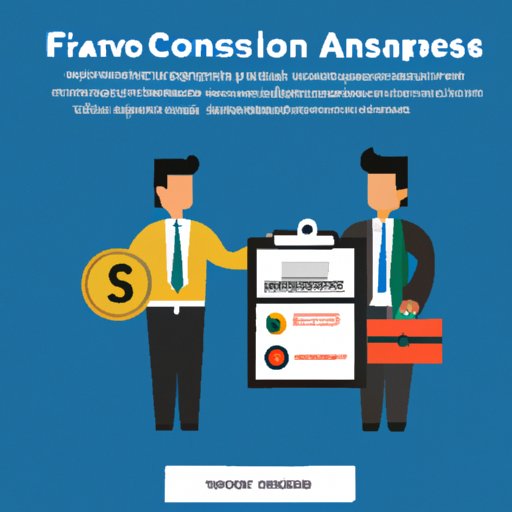
Analyzing the Cost of Financial Advisors: A Comprehensive Look
The cost of a financial advisor can vary significantly depending on the type of advice you need and the services they provide. It’s important to understand all the factors that affect the cost of financial advice so you can make an informed decision about whether or not it’s worth the investment. In this comprehensive guide, we’ll explore the various types of financial advisors, the factors that affect the cost of financial advice, and how to find an affordable financial advisor.
Types of Financial Advisors
Financial advisors come in many shapes and sizes. They may be fee-only advisors, fee-based advisors, commission-based advisors, or even salaried advisors. Each type of advisor offers a different set of services and fees, so it’s important to understand the differences before deciding which type is right for you.
Fee-only advisors are typically independent contractors who charge an hourly rate or a flat fee for their services. They don’t receive any commissions or other forms of compensation from product sales, so they are free to offer unbiased advice. Fee-based advisors, on the other hand, may receive commissions from product sales in addition to charging fees for their services. Commission-based advisors are usually employed by a brokerage firm and receive commissions from product sales but may also charge fees for their services. Salaried advisors are usually employed by banks or other financial institutions and typically do not charge fees for their services.

Factors that Affect the Cost of Financial Advice
The cost of financial advice depends on several factors, including the type of advisor you choose, the services they provide, the complexity of your situation, and the amount of time they spend with you. The more complex your situation, the more time an advisor will need to spend with you, and the higher the cost of their services will be. Additionally, some advisors may have minimum asset requirements that must be met before they will work with you.
The cost of financial advice also depends on the type of services you need. For example, if you need help with tax planning or retirement planning, you may need to pay more than if you just need help setting up a budget or investing. Additionally, some advisors may charge extra fees for special services such as estate planning or risk management.
Common Fees for Financial Advice
Financial advisors typically charge either an hourly rate, a flat fee, or commissions. Hourly rates vary widely depending on the advisor’s experience and the complexity of your situation. Flat fees are usually based on the scope of services provided and are typically charged upfront. Commissions are typically based on the products purchased and can range from a few percent to more than 10%.
Some advisors may also charge additional fees for services such as account setup, portfolio review, or tax preparation. These fees can add up quickly, so it’s important to understand what services are included in the fee structure before signing up with an advisor.

What You Can Expect to Pay for Financial Advice
The cost of financial advice varies greatly depending on the type of advisor you choose and the services they provide. Generally speaking, hourly rates range from $100 to $500 per hour, while flat fees can range from a few hundred dollars to several thousand dollars. Commissions can range from a few percent to more than 10%, depending on the product. Some advisors may also charge additional fees for services such as account setup, portfolio review, or tax preparation.
The Hidden Costs of Hiring a Financial Advisor
In addition to the fees charged by the advisor, there are several hidden costs associated with hiring a financial advisor. Investment expenses, such as management fees and trading costs, can add up quickly and reduce your returns. Opportunity costs can also be significant, as the money you invest with an advisor could be earning returns elsewhere. Finally, working with a financial advisor requires a significant time commitment, as you’ll need to provide them with detailed information about your finances and meet with them regularly.
How to Find an Affordable Financial Advisor
When searching for an affordable financial advisor, it’s important to research their qualifications and experience. Ask questions about their fees and services, and compare their fees to those of other advisors. Read reviews online to get an idea of how other clients have experienced working with the advisor. Finally, ask friends and family for referrals to trusted advisors.
Are Financial Advisors Worth the Cost?
The decision to hire a financial advisor is a personal one, and it’s important to weigh the pros and cons before making a decision. On the plus side, a financial advisor can help you develop a plan for achieving your financial goals and provide valuable guidance as you navigate the world of investing. However, the cost of working with a financial advisor can be significant, and it’s important to consider the potential drawbacks before committing to a long-term relationship.
Ultimately, the cost of a financial advisor should be weighed against the potential benefits. If you’re able to find an advisor who meets your needs and provides value, then the cost may be well worth it. On the other hand, if you’re not sure that the benefits will outweigh the costs, then it may be better to explore other options.
(Note: Is this article not meeting your expectations? Do you have knowledge or insights to share? Unlock new opportunities and expand your reach by joining our authors team. Click Registration to join us and share your expertise with our readers.)
